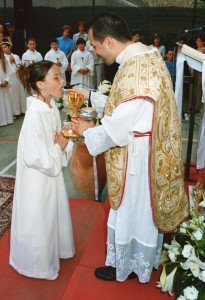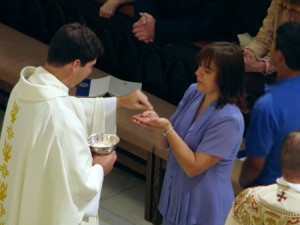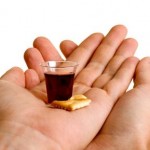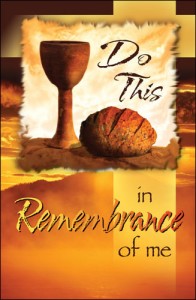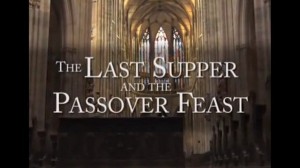[This was first posted in 2012 and reposted in time for the biblical fall festivals every year. It is intended to be read simultaneously with the sequel if you are interested in following the Sinaites’ journey through the specific quest for what is for the Jew and what is for the Gentile, according to the Torah. We have arrived at our own conclusions for ourselves as gentiles who love the God of Israel and who wish to obey His Torah. One doesn’t have to join Judaism nor become Jewish; YHWH is the God for all humankind, for all the nations, for Israel, for those outside of the chosen people. This post and its sequel explains this realization which made us start examining more closely what is expected of us. We hope it helps our readers determine the path each of you should take in your own quest for the One True God and His Way for all people, for Jew and Gentile.—Admin1.]
———————————————
In the early 1990s when our weekly Christian Bible Study was introduced to Reform Theology, I watched a teaching tape lent by a Reform pastor featuring R.C. Sproul (Robert Charles Sproul, an American Calvinist theologian, author, and pastor, founder and chairman of Ligonier Ministries). The subject was: can a Christian deviate from traditional symbols such as those instituted in the Last Supper by Jesus Christ?
If your religious journey has been from Catholicism to Evangelical and on to Messianic Christianity, you can relate to this.
As a Catholic child partaking of communion before Vatican II, you couldn’t eat after midnight, you don’t touch the “host” (thin white wafer); only the priest could touch it and put it in your mouth; once in, you have to be careful the wafer does not stick to your palate because then, you’d have to scrape it off with your tongue, and it always curls no matter what you do, so you have to immediately swallow before you damage it any further. After all, you heard in your catechism classes stories about the wafer actually bleeding when broken, because it is the body of Jesus. And oh, not to forget, you have to go to confession Saturday to prepare to receive communion Sunday.
At my aunt’s Protestant denomination, I skipped over only on Communion Sunday because aside from the wafer, you get a teeny glass of Welch’s grape juice plus you get to go to children’s bible stories during the pastor’s preaching. Their communion tradition has not changed much.
Well, some of that changed except the wafer; now you don’t have to fast before you receive the wafer in your cupped hands and shove it in your mouth yourself; perhaps in the interest of hygiene the Church today recognizes the healthier way to distribute the wafer in these days of pandemic alerts, careful not to spread germs from the priest’s fingers if he dispenses from mouth to mouth.
Later with Evangelical missionaries, some fellowships used the wafers and small glasses of grape juice on special Sundays; others used white loaf bread cut in cubes; smaller groups used one rough looking home-made loaf from which you tear a piece.
Being a germophobe, the ritual I refused to participate in was drinking wine from the same chalice that got passed around from mouth to mouth, evidence of true fellowship, brotherhood, sisterhood.
Messianics mostly followed Jewish traditions, using unleavened bread on occasions where leavened bread is not allowed, and as for the wine —thankfully, each partook from his own glass; some discussion was on whether or not fermented wine (as in % alcoholic content) was what Jesus and his disciples drank.
Remember — these are Christian denominations observing the same occasion of the Last Supper, but in different ways.
So back to Rev. R.C. Sproul’s passionate preaching. His point was this: someone in his congregation had asked, did they have to stick to the traditional wine and bread symbols just because that is what Jesus used at the Last Supper? What if they shared a hamburger and a coke from MacDonald’s, would that not be acceptable since what it’s all about is fellowship among believers in Jesus?
Rev. Sproul almost went ballistic (well, not quite, he did lose his cool); he insisted on how vital it is to stick to the original symbols, because after all we are remembering a significant event in the life of our Christian Savior. If wine for the blood and bread for the body were used, then wine and bread it must be. I do remember thinking—easy for Americans and Jews to stick to the original; but what about the poor Asian farmer and his family who only have rice and fish and coconut water? Sproul had a point: the material elements were symbolic of things spiritual. You could not apply coke for blood and hamburger for body could you now?
Sometimes ignorance is bliss. What you don’t know doesn’t upset you. So millions of sincere adherents to this belief system and its traditions continue Sunday after Sunday, holidays of obligation, etc., thinking no further than what preachers and church leaders ordain, just like we did. . . until we opened our eyes and ears to more teaching, this time, from the Messianic perspective which incorporates Jewish traditional observances, but full of Christ-symbolism.
Even before our Christian bible teacher became messianic, he was way ahead, already teaching that the “Last Supper” was really the Passover meal which Jesus and his disciples observed on the eve of his crucifixion.
Our teacher said it should not be called the “last supper,” perhaps the “Lords’ supper,” but better yet the Last Passover, since after he–as the sacrificial LAMB — gives up his life, that is it, “it is finished.” No longer should Jesus’ apostles as Jews look back to their original redemption from Egypt, but this special Passover Seder led by God-Son himself was an inaugural supper of the new covenant, no longer confined within the Jewish family, but the new fellowship of believers in Jesus who, as Passover/Paschal Lamb, would then fulfill the prophetic feasts of Israel all in one sacrifice of his body and blood. Messianics recognize the Leviticus 23 feasts as MUST-observe, but with Jesus fulfilling all of them in his earthly ministry.
I had never forgotten the point of Rev. Sproul, mainly because I did not agree with him then but who was I to question the teachings of a Calvinist theologian? I believe then as now, that while traditional, cultural, religious observances are designed to help the believer understand, experience, and even enjoy celebrating church-instituted feasts or biblical feasts, the essence of the feast, its purpose is of the utmost importance, if the manner of observance is not possible under certain circumstances. For those who can afford to celebrate exactly as they think the original would have been, so be it; for others who cannot, then the teaching, the lesson, the knowledge we gain about God and ourselves as humble worshippers must dominate more than the trappings. It’s really all about God first. And the heart of true worshippers next, even if they have yet to meet the True God.
What comes to mind right now is a report I had seen on TV about a group of Christians in communist China who would meet in secret for worship, and sing hymns without voicing out sounds of words and music, but simply opening their mouths. Truly, that made my hair stand up!!! Are they worshipping the God they know and love? Within the limitation of the light they have received and their chosen religious expression, yes of course. Would God love them back? Wouldn’t you think so? We are all together in this journey of life, seeking God in the places we think He dwells; surely He honors the travellers who continue the journey and don’t get stuck in any religious station, never moving on to the next. Aren’t we glad we are not sitting on the judgment seat of God? All true seekers are on the way . . . .
Now to Leviticus 23. What would have been YHWH’s purpose in giving Israel all those details in building the Tabernacle and instituting the feasts? He allowed the Temple to be built inJerusalem, allowed it to be desecrated and destroyed, then rebuilt, then destroyed, then rebuilt, then totally destroyed by the Romans. . . the same political power from which sprung the new political-religious power that recognized Jewish foundations but took off to a different direction.
Surely it was with the permission of the God of Israel for His Temple to be taken out of the center of Jewish religious life eventually . . . and the Jewish sages have had to think and rethink what are the substitutes when they are in other countries, other cultures, other times. And what about us, non-Jews in transition, just awakening to the TORAH of YHWH, slowly shaking off the last traces of influence on our thinking of our past religious orientation?
[To be continued in – How now do we observe Biblical Feasts? – 2].
for Sinai 6000
Core Community

